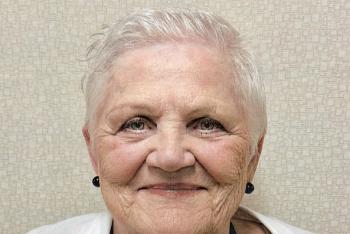Learn about how transcarotid artery revascularization (TCAR) compares to traditional treatments like...
Read More
Heart disease is often perceived as a predominantly male concern, but the reality is that it poses a significant threat to everyone, regardless of gender. In fact, heart disease is the leading cause of death for women worldwide. Understanding women's unique challenges and taking proactive steps to maintain heart health is crucial.
Heart disease symptoms can manifest differently in women than in men, making early detection challenging. Familiarizing yourself with these atypical symptoms can be a lifesaver.
“Women may experience subtler signs of heart disease such as nausea, fatigue or shortness of breath, and abdominal pain which can be misattributed to stress or other conditions,” said Gerald Orlando, D.O., a physician at Inspira Medical Group Primary Care.
Hormones play a pivotal role in heart health for women. The decline in estrogen during menopause can impact cholesterol levels and increase the risk of heart disease. Estrogen has protective effects on the cardiovascular system, so postmenopausal women should be extra vigilant about maintaining a heart-healthy lifestyle. Do not take any hormone supplement without help from your doctor, as this does not give any protection against cardiovascular events.
Women are susceptible to unique cardiovascular conditions such as coronary microvascular disease (MVD) and spontaneous coronary artery dissection (SCAD). MVD affects small arteries in the heart, while SCAD involves a tear in the artery walls. These conditions require specialized attention and awareness. Seeking medical advice for any unusual symptoms is crucial for early intervention.
Additionally, pregnancy-related complications, such as gestational diabetes and preeclampsia, can increase a woman's risk of heart disease later in life. “If you have a history of these conditions, talk to your provider about more vigilant heart health monitoring,” said Dr. Orlando.
Incorporate a heart-healthy diet rich in fruits, vegetables, whole grains and lean proteins. “Omega-3 fatty acids, found in fish, can have particularly positive effects on heart health,” said Dr. Orlando.
Engage in regular physical activity, aiming for at least 150 minutes of moderate-intensity exercise per week. Exercise is a powerful tool in maintaining cardiovascular health and preventing heart disease.
Chronic stress can contribute to heart disease. Adopt stress-reducing practices such as meditation, yoga or deep breathing exercises.
Smoking is a significant risk factor for heart disease. “Quitting smoking is one of the most impactful steps a woman can take to reduce her risk of heart-related complications,” said Dr. Orlando.
Empowering women to prioritize their heart health is a collective responsibility. By recognizing unique symptoms, understanding hormonal influences and adopting a heart-healthy lifestyle, women can take charge of their cardiovascular well-being.
Inspira offers comprehensive primary care throughout the South Jersey region. Find a primary care provider.

Learn about how transcarotid artery revascularization (TCAR) compares to traditional treatments like...
Read More
Meet Rosalind Jackson: At 82, she's unstoppable. Despite enduring multiple heart attacks, this...
Read More
Sometimes, the symptoms of a heart attack are more subtle than what we see in the movies. Inspira...
Read More